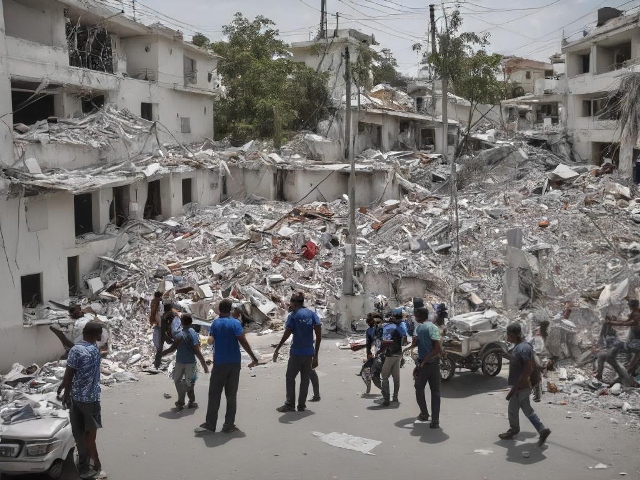UN Expert Decries Gang Attacks on Haiti’s Health Sector and Journalists: Health System Near Collapse
“Access to health care and the safety of those who provide it are clearly at great risk in Haiti,” O’Neill said.

The UN’s designated expert on human rights in Haiti, William O’Neill, has raised alarm over a series of violent attacks on hospitals, health care workers, and journalists by criminal gangs in December, warning that Haiti's already fragile health system is nearing total collapse.
O’Neill expressed deep concern over two major incidents last month: the attack on Bernard Mevs Hospital in Port-au-Prince on December 17 and the killing of journalists and a Haitian National Police officer during the official reopening of the General Hospital on December 24. These events are part of an escalating wave of targeted violence against the health care sector that has intensified over the past two years.
“Access to health care and the safety of those who provide it are clearly at great risk in Haiti,” O’Neill said. “Criminal gangs have murdered and kidnapped physicians, nurses, and humanitarian workers. They have burned, ransacked, and destroyed numerous hospitals and clinics, forcing many to close or suspend operations. These are deliberate attacks, not random acts of violence.”
Alarming Statistics and Systemic Collapse
The situation is dire: only 37 percent of health facilities in Port-au-Prince are fully functional, and access to them is severely restricted due to security concerns. In addition to the physical damage inflicted by gangs, the exodus of medical professionals fleeing for safety has further strained an overstretched system.
O’Neill emphasized that these attacks appear to be calculated efforts to dismantle the health care infrastructure. “Gang members’ repeated threats to target health premises indicate these are intentional assaults. Shockingly, there are reports of police officers being involved in attacks against patients and threats directed at health workers,” he added.
Public Health Implications
The disruption of Haiti’s health care system has profound consequences for the population, particularly for children and vulnerable groups. Outbreaks of preventable diseases like cholera and tuberculosis are escalating in the wake of these attacks. “The Haitian people are once again paying the high price of this violence with their right to health severely hindered,” said O’Neill.
Journalists in the Crosshairs
Haiti is also one of the most perilous countries for journalists. The December 24 incident underscores this fact, as several journalists have been killed, while others have fled the country in the face of mounting death threats. “Journalists play a critical role in documenting the crisis, yet they are being silenced through intimidation and violence,” O’Neill said.
Calls for International Action
O’Neill urged the international community to step in and assist Haitian authorities in addressing the pervasive insecurity. “Haitians need support to ensure the realization of the right to health, including unhindered access to health facilities, goods, and services. The State must also investigate and prosecute those responsible for these atrocities, ensuring they are brought to justice.”
Additional Developments
To address the spiraling crisis, humanitarian organizations have called for increased international aid to rebuild health infrastructure and strengthen the security of medical personnel. Proposals include deploying specialized UN peacekeeping forces and equipping Haitian police with advanced resources to combat gang activity effectively.
Without immediate intervention, experts warn that Haiti's health system could face irreversible collapse, exacerbating an already dire humanitarian crisis.
- READ MORE ON:
- Haiti
- William O’Neill










